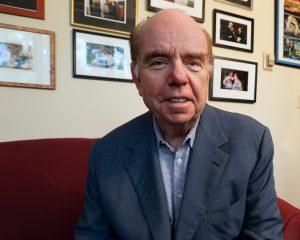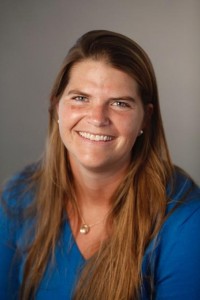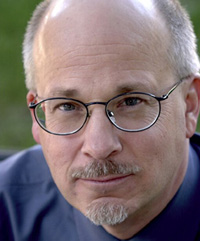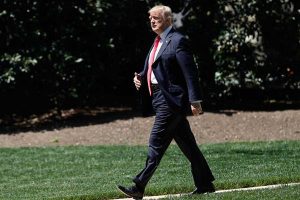Looking back on 100 days for the 45th president
On April 29, President Trump will commemorate 100 days in office. USC experts explain the challenges he faces and the ups and downs of his first days in the White House.
Also, the USC Dornsife College’s Unruh Institute of Politics will host the “Trump’s First 100 Days,” on Wednesday, April 26, 9 a.m.-5 p.m. Details are below. RSVP for the event via this website.
Contact: Emily Gersema at (213) 361-6730 or gersema@usc.edu; Zen Vuong at (213) 300-1381 or zvuong@usc.edu
 Prologue to an ‘unpredictable’ presidency
Prologue to an ‘unpredictable’ presidency
“This has been the most unconventional first 100 days of any presidency in modern history. His shortfalls have actually been politically fortunate. For example, President Trump apparently doesn’t know how blessed he was by his most conspicuous failure to date: health care. The Trump-Ryan proposal encountered fierce opposition, would have hurt many who voted for him, and increased public approval of Obamacare. The president also signed a now-stalled travel ban and executive orders rolling back regulations on matters ranging from the environment to reproductive rights, to worker and consumer protections. However, the current legislative stalemate blocking his major initiatives may ease the fears of those who foresaw more sweeping, unwelcome change. In a few days, he will face his next test: keeping the government open by raising the debt ceiling.
“Crises overseas recently moved to the fore. The candidate who proclaimed ‘America First’ suddenly has become the president who fires missiles at a Syrian airfield and confronts a nuclear North Korea while he shifts on NATO, China and Russia. Is there a coherent strategy? None has been enunciated. President Trump says he would prefer to keep hypothetical foes guessing, raising apprehension.
“Finally, one shadow hangs over Trump’s first 100 Days and probably the first year of this presidency: the investigation of Russian interference in the election and possible Trump campaign ties to it.
“I haven’t even mentioned the tweets, the feud with the press or infighting within the White House. The past three months seem a prologue to an unpredictable four years. To paraphrase Bette Davis in All About Eve: ‘Fasten your seatbelts; it’s going to be a bumpy ride.’”
Robert Shrum is the director of the USC Dornsife College’s Jesse M. Unruh Institute of Politics, a political science professor, strategist and consultant who served as senior advisor to the Kerry-Edwards campaign in 2004 and to the Gore-Lieberman campaign in 2000.
Contact: (202) 338-1812 or shrum@usc.edu
After the election, public opinion moderates
“Our analyses both before and after the election have shown a great deal of stability in opinions about a Trump presidency. There has only been one significant shift: Right after the election opinions of Trump supporters got even more enthusiastic and, at the same time, Clinton supporters became a little less unhappy about the prospect of a Trump presidency.
“Since the election, opinions have moved only moderately. The lack of movement reflects a sharp divide in the news sources people use to form their opinions and even more striking in the news sources they trust. Thus, in many ways different groups in the country have a very different take on what is true and have a different appreciation of what matters.”
Arie Kapteyn is the executive director of the Center for Economic and Social Research at USC Dornsife College, a professor of economics and a public polling scientist.
Contact: (213) 821-1795 or kapteyn@usc.edu
Health care law stays in place but subsidies unresolved 
Efforts to repeal the Affordable Care Act appear to have stalled after the proposed American Health Care Act drew significant public criticism. However, ACA has some unresolved issues, which USC Schaeffer Center for Health Policy and Economics experts noted in a recent blog post for Brookings Institution:
“The ACA requires insurers to cover cost-sharing subsidies to help low-income exchange enrollees pay out-of-pocket costs like deductibles and copays, with the understanding that they will be reimbursed by the federal government. However, these payments to insurers are currently subject to legal challenges, and the administration has been unclear regarding whether it intends to continue to fund them (or ask Congress to do so legislatively). Similarly, it is highly unclear whether the administration plans to enforce the law’s individual mandate, or whether they will actively support the marketing of policies during open enrollment.”
Erin Trish, an assistant research professor at the USC Price School of Public Policy and the USC Schaeffer Center, wrote those statements in the blog post for the Leonard D. Schaeffer Initiative for Innovation in Health Policy, a partnership between the Center for Health Policy at Brookings Institution and the Schaeffer Center. Co-authors of the blog were Loren Adler and Paul Ginsburg, also of USC Schaeffer Center.
Contact: (213) 821-6178 or etrish@healthpolicy.usc.edu
Trump’s travel ban likely headed to the nation’s high court 
“Regardless of how the appellate courts rule — and there is a good chance that the two appellate courts will issue conflicting decisions — it is extremely likely that the travel ban will be considered by the U.S. Supreme Court.
“The Supreme Court has long recognized the president’s constitutional and statutory authority to impose nationality-based restrictions on the admission to the United States of non-citizens, and there is a possibility that the Supreme Court will view the travel ban, or some portions of the travel ban, differently from the lower courts. The major distinguishing feature of the current travel ban relative to past restrictions is the Muslim religious animus that has been expressed by President Trump and his advisors during the presidential campaign and after his inauguration. But it remains to be seen if the Supreme Court will be persuaded that evidence of religious animus will be sufficient for the Supreme Court to revisit its past decisions upholding broad presidential authority over immigration matters.
“The litigation and political protests triggered by the travel ban have overshadowed President Trump’s other major immigration executive orders dealing with interior and border enforcement, many provisions of which are now in the process of being implemented, including expanded hiring of ICE officers and immigration judges and acquisition of significant new immigrant detention capacity. While the president has clear authority to enforce existing immigration laws and, if Congress provides additional funding, to significantly increase immigration enforcement, it remains to be seen precisely how the president will exercise these powers and whether there will be legal and constitutional reasons for challenging any new enforcement actions.”
Niels Frenzen specializes in immigration and refugee law and is director of the USC Gould School of Law Immigration Clinic.
Contact: (213) 740-8933 or nfrenzen@law.usc.edu
NEA funding appears safe 
“Although President Trump has requested that the NEA and other cultural agencies be eliminated, the National Endowment for the Arts is in no danger. There is enough bipartisan support in both houses of Congress to keep both the NEA and National Endowment for the Humanities safe.
“The NEA has carefully built this bipartisan consensus in Congress during the past 15 years by supporting arts projects of the highest quality, creating arts education programs for the nation’s schools and providing funding for every state and Congressional district in America with special attention to underserved communities. Congress understands and appreciates the value of these programs.
“The left and the right love to squabble in public about the NEA, reliving the controversies of the previous century. It is a dark and destructive sort of political nostalgia. These arguments have almost nothing to do with the NEA as it currently exists and serves the nation. Congress understands the agency’s good work as do the vast majority of Americans. Public support of the arts and arts education is not a divisive issue. It is simply civic common sense.”
Dana Gioia was unanimously confirmed twice to be chairman of the NEA from 2003 through 2009. Gioia is the California Poet Laureate and the Judge Widney Professor of Poetry and Public Culture, a university-wide appointment affiliated with the USC Dornsife College of Letters, Arts and Sciences, USC Thornton School of Music, USC Marshall School of Business and USC Price School.
Contact: (213) 740-2797 or gioia@usc.edu
Proposed cuts to arts, humanities threaten freedom of speech 
“President Trump is the first president ever to call for the elimination of the NEA, bundling it in there with the NEH and Corporation for Public Broadcasting, which affects NPR. Usually, senators are the ones to protest the spending of federal funds on the arts. Congressional criticism has been going on practically since the beginning of the NEA in 1965 (the first expression of skepticism occurring in 1968 over fellowships for individual artists).
“So, in a sense, the NEA has woven into its DNA a tension: Should the government support the arts, or not? It’s proven to be a healthy tension.
“In this country, artists and writers have a First Amendment right to express a point of view. Cutting the funds that support them is a threat to that freedom.”
Sasha Anawalt is director of the USC Annenberg Master’s Program in Arts Journalism. The program is a partnership with USC’s six arts schools. Anawalt ran the Getty Arts Journalism Program for 13 years and the NEA Arts Institute for Theatre and Musical Theatre for seven years, both at USC Annenberg School for Communication and Journalism.
Contact: (213) 740-1818 or anawalt@usc.edu
‘Trump’s First 100 Days’ conference to be held Wednesday
The Jesse M. Unruh Institute of Politics will host a conference next Wednesday about the first days of the presidency. Panels of political scientists, journalists, polling experts, strategists and politicians will discuss topics such as how public opinion on President Trump has shifted since the election, U.S. policy issues such as health care and tax reform, and foreign policy matters such as U.S. relations with Russia, Syria, China and North Korea.
The day will close on a panel discussion about the future of the Republican and Democratic parties. The event is free and open to the public.
WHEN: Wed., April 26, 8:30 a.m.- 5 p.m.
WHERE: University of Southern California, Town & Gown Ballroom, 655 Exposition Blvd., Los Angeles, CA 90089
WHO: Journalists, politicans, political scientists, policy experts and strategists will participate in panel discussions throughout the day. A partial list of speakers:
- Ron Christie, BBC political commentator and former special assistant to President George W. Bush
- David Lauter, Washington bureau chief, The Los Angeles Times
- Todd Purdum, senior writer, Politico
- Joel Pollack, Joel Pollak, senior editor-at-large, Breitbart News
- Ange Marie-Hancock, USC professor of political science and gender studies
- Jane Junn, political science professor, USC Dornsife
- Matthew Kahn, economics and spatial sciences professor, USC Dornsife
- John Emerson, former U.S. Ambassador to Germany
- Nina Hachigian, former U.S. Ambassador to Association of Southeast Asian Nations
- Anthony Scaramucci, Founder of SkyBridge Capital and Adviser to Donald Trump
- Bill Carrick, Democratic consultant and strategist to Sen. Dianne Feinstein and Los Angeles Mayor Eric Garcetti
A complete list of speakers and an agenda are here.
*RSVP to attend the conference at this website.*
# # #
[Image credit: Main image of President Donald Trump: Photo by Carolyn Kaster, AP; Photo of Robert “Bob” Shrum: Photo Credit: Matt Meindl]





